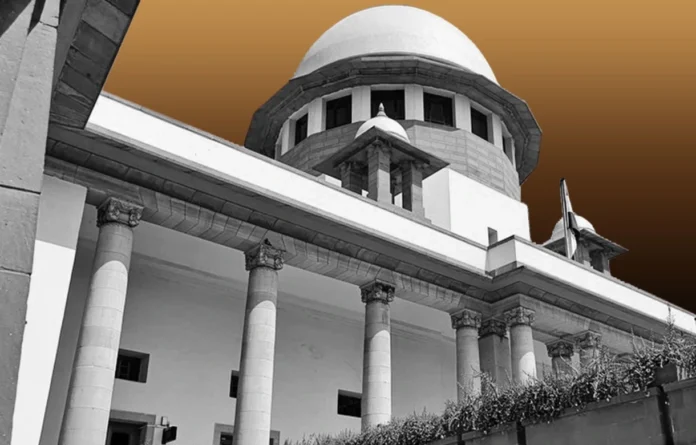The Supreme Court of India recently declined to stay the Madras High Court’s judgment that quashed a Tamil Nadu government order permitting the construction of marriage halls using funds from five temples. The original government order had authorized the use of surplus temple funds for building marriage halls, but the High Court held that this violated the Hindu Religious and Charitable Endowment Act, 1959, and associated rules.
The bench comprising Justices Vikram Nath and Sandeep Mehta heard a petition challenging the High Court’s decision but refused to grant any interim relief.
The Madras High Court had carefully examined the provisions of the HR & CE Act and observed that the diversion of temple funds for constructing marriage halls did not fall within the scope of “religious purpose” under the statute. While Hindu marriages are considered sacramental, the Court noted that they also involve contractual obligations and that renting out marriage halls for a fee further indicated a commercial purpose rather than a charitable or religious one.
The High Court emphasized that surplus funds from temples, including movable and immovable assets, donations, and jewelry, must only be applied toward activities that are strictly religious or charitable in nature. Any deviation, particularly for ventures that could involve entertainment, music, dance, or the service of alcohol, was deemed impermissible.
During the Supreme Court hearing, the bench questioned the state’s justification for diverting temple funds toward marriage halls and suggested that such resources could be better utilized for genuine charitable activities, such as constructing hospitals, schools, or other institutions serving public welfare. The Court’s refusal to stay the High Court order reinforces the principle that religious institutions’ funds are to be administered in accordance with statutory provisions and protected against misuse for purposes that are not explicitly religious or charitable.
The case highlights the judiciary’s careful scrutiny of state actions concerning religious endowments and underscores the importance of ensuring that surplus funds from temples are deployed in a manner consistent with their intended religious and charitable objectives.
It also reflects the courts’ broader concern with maintaining the sanctity of donations made by devotees and preventing their diversion toward projects with commercial or non-religious intent. The matter remains under judicial consideration following the Supreme Court’s issuance of notice to the Tamil Nadu government regarding the challenge to the High Court judgmen


